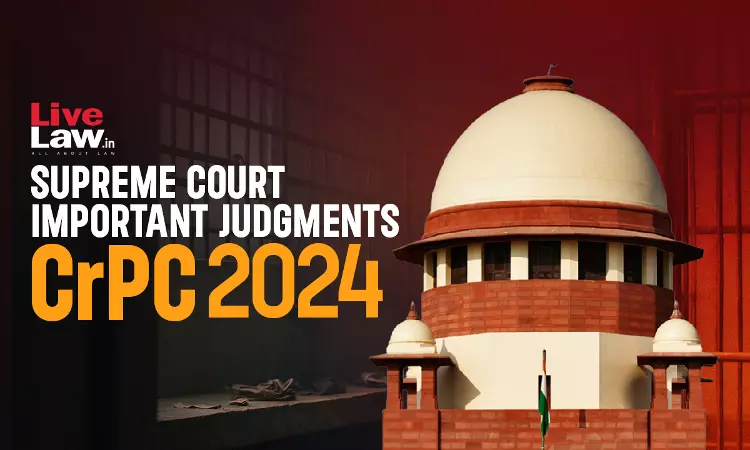Code of Criminal Procedure (CrPC): Important Judgments By Supreme Court In 2024
Yash Mittal
1 Jan 2025 3:56 PM IST

Next Story
1 Jan 2025 3:56 PM IST
As 2025 begins, Live Law summarizes important decisions on the Code of Criminal Procedure of the past year. Here are the key highlights:1. Witness Statement Recorded In Absence Of Accused Can Be Used As Evidence If Conditions In S.299 CrPC Are Fulfilled : Supreme CourtCase Title: SUKHPAL SINGH VERSUS NCT OF DELHI, Citation : 2024 LiveLaw (SC) 359The Supreme Court held that the statements of...
